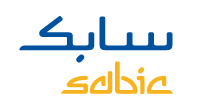This latest achievement is another example of SABIC’s commitment to working to accelerate a circular economy to ensure plastic products are designed, produced, used, and recycled more sustainably. “We are very pleased about the ongoing strategic efforts with Mars and Huhtamaki,” states Lada Kurelec, General Manager PP, PET, PS, PVC, PU & Elastomers Businesses for Petrochemicals at SABIC. “The transformation of the industry towards a circular economy requires unprecedented innovation and intensive collaboration across the value chain. Together, we have set another milestone on this exciting journey.”
The new wet pet food retort pouch solution continues the partners’ efforts to support a circular economy by incorporating advanced recycled content in pet food packaging. “We are pleased to share the progress in our sustainable pet food packaging journey. Over the past year, we have been closely working with SABIC and Huhtamaki, continually testing and learning, and scaling up the recycled plastic content in our pet food packs. As part of our Sustainable in a Generation plan, we are committed to doing our part to help drive a circular economy, which includes redesigning our packages for circularity. The fact that we are now able to introduce recycled content into our SHEBA® pouches helps us accelerate our journey to achieve 30% average recycled content in our plastic packaging and to reduce by 25% our use of virgin plastic” says Barry Parkin, Chief Procurement and Sustainability Officer at Mars, Incorporated.
In November 2020, Mars, Incorporated had announced its ambition to introduce food-safe recycled content polypropylene into its pet food packaging to do its part in building a circular economy where no packaging becomes waste. In partnership with SABIC and Huhtamaki, the goal was to develop and deploy recycled plastic in pet food brands.
One of the most critical issues to overcome for the joint development team was the technical challenges involved in receiving approval for the complex new packaging structure. Wet food retort packaging is associated with demanding thermal processing conditions to ensure the highest food quality and help Mars Petcare achieve its purpose of creating a better world for pets. By using material from a recycled source under the International Sustainability & Carbon Certification (ISCC) PLUS program, it proves that under even the most challenging of packaging processed, recycled content can be safe and a reality for the future.
Marco Hilty, President of Huhtamaki’s Flexible Packaging business segment said: “We are fully committed to partnering with global leaders to develop solutions which drive the transition to a circular economy. We are proud to work with Mars and SABIC on a concrete solution that can be used globally. Successfully processing recycled polymers into high-quality, easy tear films for wet retort packaging at an industrial scale is a significant milestone in delivering on our ambition to have more than 80% of our raw materials renewable or recycled. This is important for consumers and in line with our ambitious 2030 strategy.”
Huhtamaki uses the certified circular polymer as a phthalate-free and gel-controlled film layer, which lends the flexible pouches high impact strength and puncture resistance even at low temperatures down to -20°C. For wet food packaging, the pouches must also be capable of withstanding a retort temperature of 135°C for 60 minutes. An even higher thermal resistance of up to 160°C may be needed in freezer-to-oven applications.
SABIC’s certified circular polymers form part of the company’s TRUCIRCLE portfolio and services for circular solutions. The offering also includes design for recyclability, mechanically recycled products, certified renewable polymers from bio-based feedstock, and closed-loop initiatives to recycle plastic back into high-quality applications and help prevent valuable used plastics from becoming waste.

